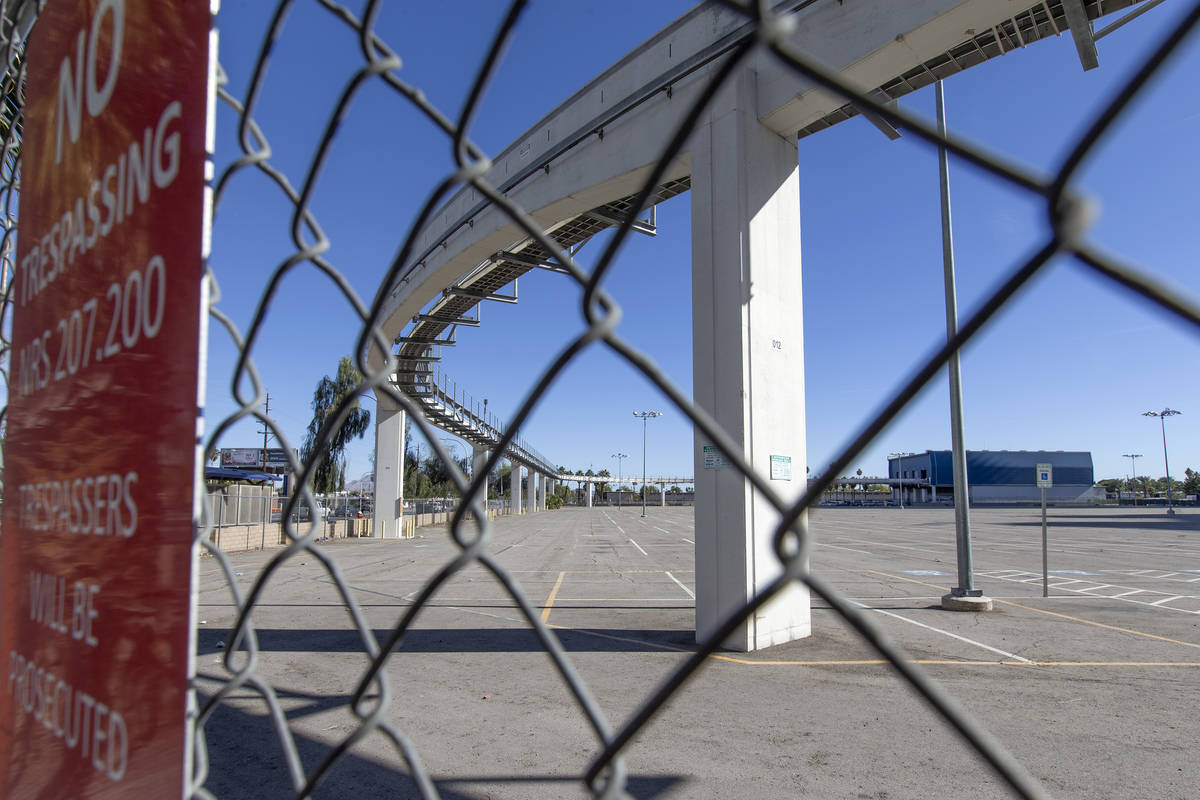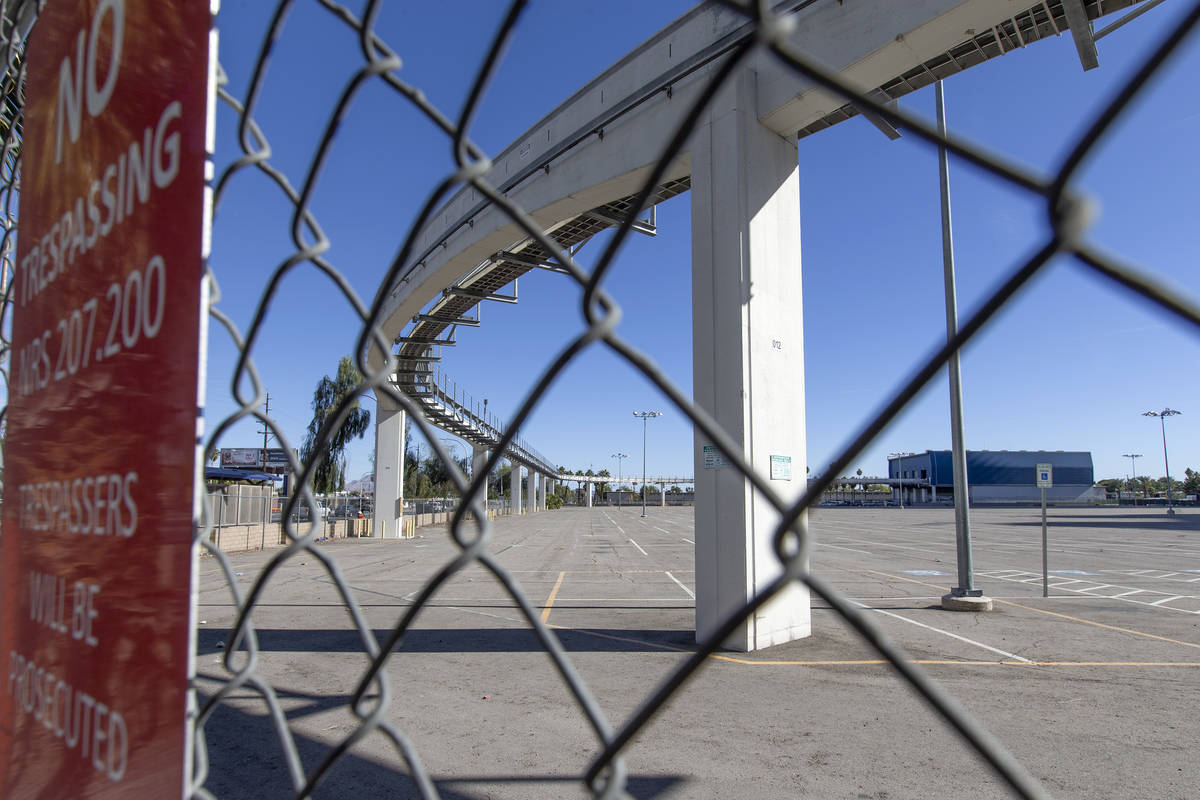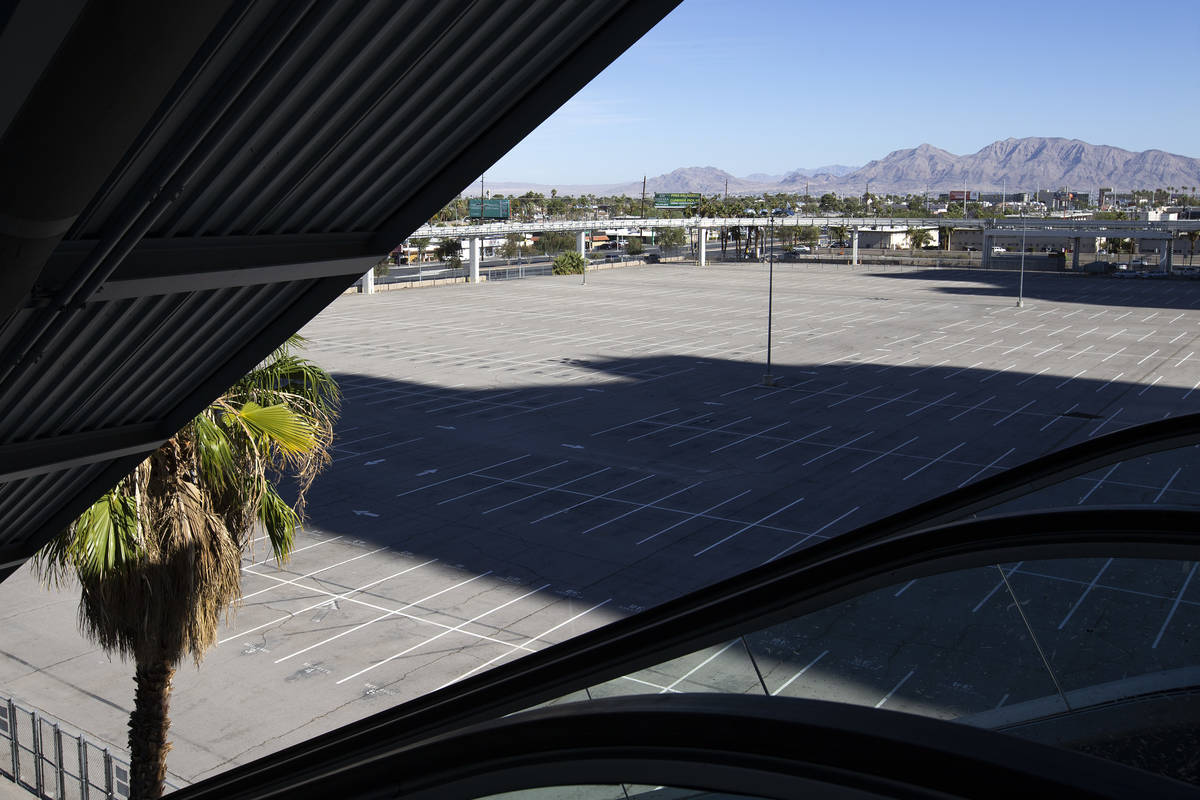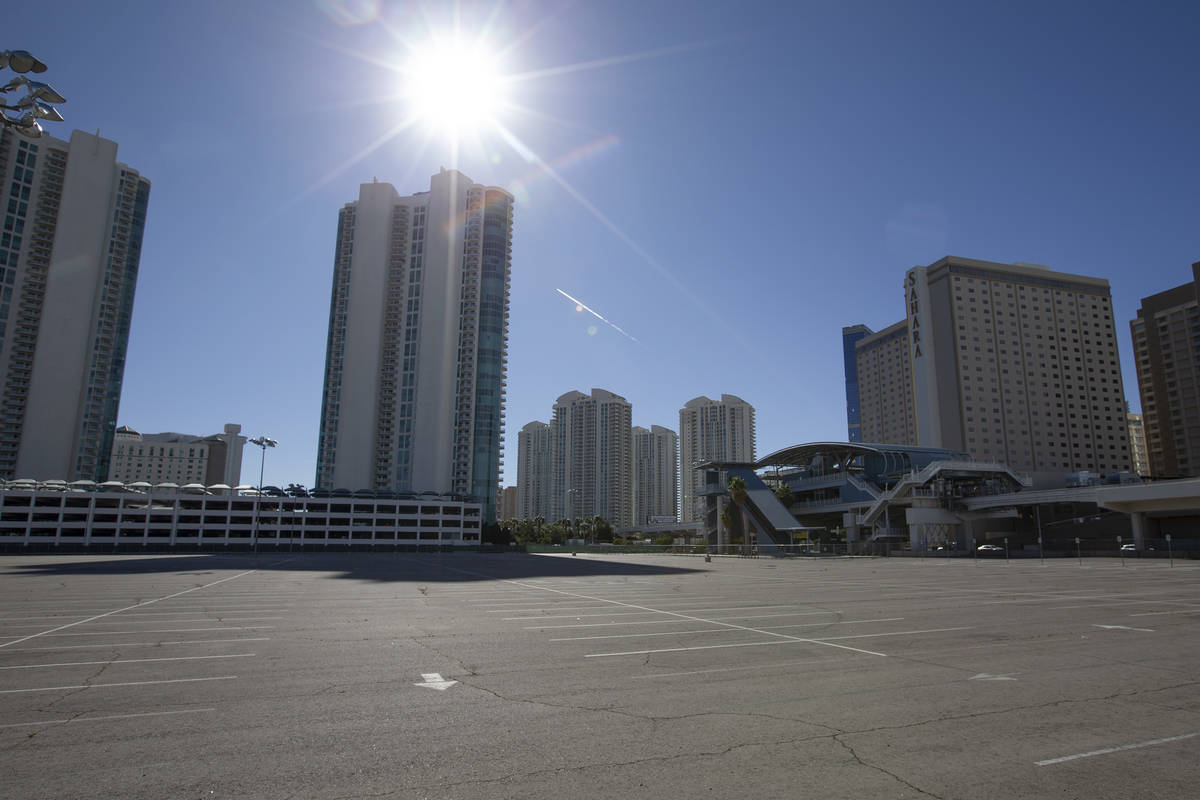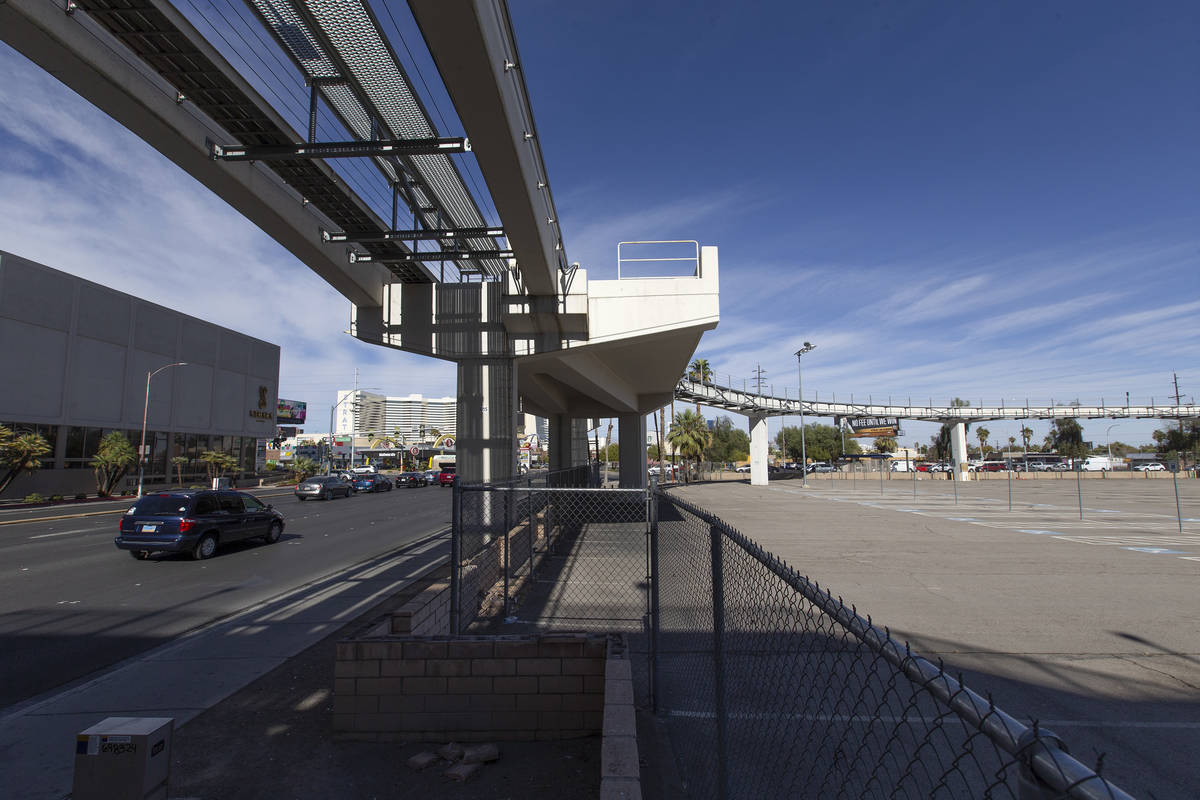No temple yet, but Buddhist group objects to Monorail sale
A few years ago, some vacant real estate near the Strip was purchased by an unlikely buyer for the gambling-packed, booze-soaked tourist corridor: a California Buddhist group.
The religious organization still hasn’t built its envisioned temple, but it has been throwing its weight around in court.
The World Buddhism Association Headquarters, owner of a big parking lot behind the Sahara Las Vegas, has filed court papers objecting to the proposed sale of Las Vegas’ bankrupt, privately owned monorail system, which has a station at its property. This follows the religious group’s lawsuit two years ago against the monorail’s operator and the neighboring casino owner over certain upkeep responsibilities for the station.
It’s unclear how, or if, the group’s actions in Las Vegas Monorail Co.’s bankruptcy case will affect the transit system’s planned $24 million sale to the Las Vegas Convention and Visitors Authority, let alone the system’s ability to resume operations anytime soon. Monorail management suspended service in March when Las Vegas was rapidly shutting down over fears of the coronavirus outbreak.
But the Buddhist group’s filings show that, while it hasn’t started building its house of worship, it hasn’t shied away from going to court over the monorail facilities at its property.
Attorneys for the Buddhist group did not respond to requests for comment. Monorail spokeswoman Ingrid Reisman declined to comment Friday, saying the matter is still before the court.
‘A questionable extreme’
The World Buddhism Association Headquarters, based in Pasadena, California, acquired 12.2 acres at the corner of Sahara Avenue and Paradise Road, just east of the Strip, in summer 2018 for $17.5 million. At the time, an attorney for the group told me it wanted to build a Buddhist temple but had “very limited funds,” and there was “no possibility of quickly beginning” construction.
It was among the most unexpected land deals I’ve ever covered in Southern Nevada.
“The most authentic temples are built in contemplative contexts,” Occidental College professor Dale Wright, who specializes in Buddhist philosophy, told me at the time. “Although being in public and serving the people would be admirable qualities, the Vegas Strip is pushing this to a questionable extreme.”
A few months after the deal closed, the association sued Las Vegas Monorail and the owners of SLS Las Vegas, as the Sahara was previously known.
Monorail tracks ring much of the Buddhist group’s property, leading to a transit system facility on the east side of the parcel, and the station, on the west side, is linked to the neighboring resort by a pedestrian bridge over Paradise.
The Buddhist group claimed in the lawsuit it is “not obligated to perform any” upkeep or other work on connection areas to the station, or “incur any financial costs” of that work.
The maintenance obligation was outlined in a pre-existing easement. After the suit was filed, Las Vegas Monorail stated in court papers that the Buddhist group’s “primary apprehension” about the upkeep was related to an upcoming project to replace the station’s escalator and elevator system, an expected $1 million-plus endeavor.
The monorail company was awarded more than $166,000 in the case this past June, court records show. The Buddhist group has appealed.
Prepackaged sale
With Las Vegas’ tourism-dependent economy limping along under the coronavirus outbreak, the monorail company filed for bankruptcy protection in September as part of a prearranged deal for the LVCVA to buy the 3.9-mile transit system, which runs parallel to the Strip connecting several resorts and the Las Vegas Convention Center.
An attorney for the Buddhist group has said in court papers that it objects to the sale for multiple reasons. Among them: it owns elevators, escalators and stairs for the station at its property, and the monorail company cannot sell equipment that “it does not own.”
Monorail lawyers replied this argument is “materially misleading,” as the Buddhist group is “conflating” transit system property with certain easements and “seems not to understand” what the company is selling.
LVCVA spokeswoman Lori Nelson-Kraft told me Friday that the agency would resume the monorail’s operations “when there is visitor demand” for the service, and that the purchase would allow for other transportation options nearby, as the noncompete area around the monorail would be able to be eliminated.
Of course, as with everything these days, plenty of questions remain. When will the monorail start running again? Will tourism fully recover in Las Vegas? Will the Buddhist group build its temple? Will life ever return to normal?
Who knows?
Contact Eli Segall at esegall@reviewjournal.com or 702-383-0342. Follow @eli_segall on Twitter.



